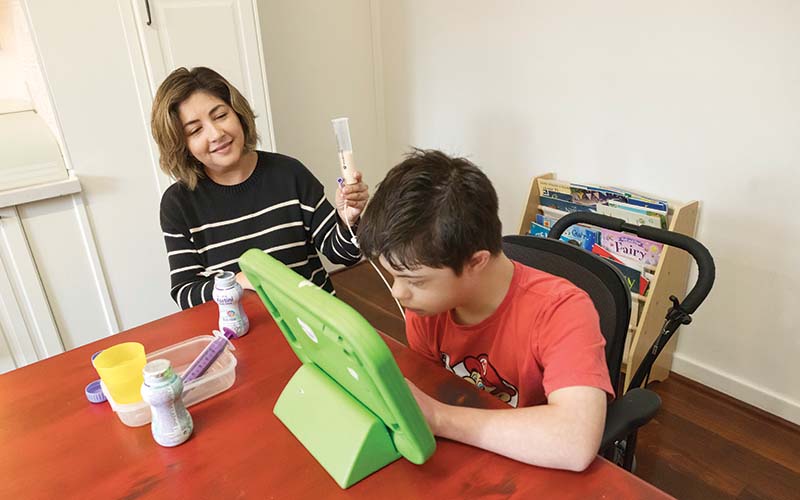Search
This study aimed to validate qPCR assays for specific microbiota, for use on dental plaque samples stored on Whatman FTA cards to compare relative oral health risk in Rett syndrome.

For thousands of children around Australia with intellectual and other disabilities, the process of eating can be traumatic, posing challenges that veer from uncomfortable to life threatening.
Valid clinical outcome assessments with the ability to capture meaningful aspects of neurodevelopment for individuals with neurogenetic conditions associated with profound functional impairments are lacking, yet critical for clinical care and clinical trial readiness.
Appropriate support for the health of children with an intellectual disability by parents and healthcare professionals is pivotal, given the high risk of chronic conditions. However, there is limited research that has collected important insights from parents on their learnings for supporting their child's evolving healthcare needs.
Caregivers of individuals with neurodevelopmental and chronic health conditions require health literacy (HL) skills for the long-term management of these conditions. The aim of this rapid review was to investigate the efficacy of HL interventions for these caregivers.
Jenny Downs BApplSci (physio) MSc PhD Head, Child Disability 08 6319 1763 Jenny.Downs@thekids.org.au Head, Child Disability Areas of research
People with intellectual disability are at risk of poor physical and mental health. Risks to health are compounded by poor health literacy, that is, reduced capacity to access health services, respond quickly to changes in health status and navigate care pathways. Building health literacy skills is a strength-based way to increase health and optimise the use of healthcare services. The internet is a primary source of health information for many people, including people with intellectual disability and their families.
Intellectual and developmental disabilities (IDD) are varied in their nature and presentation. Barriers to oral healthcare are reported in studies of general populations with IDD but these may not reflect the barriers experienced by individuals with rare disorders such as Rett syndrome.
Septo-optic dysplasia (SOD) is a major cause of congenital hypopituitarism and is known to be associated with overweight and obesity in up to 44% of children. Given the role of the hypothalamus in hormonal regulation, we sought to assess the association of resting energy expenditure (REE), appetite and physical activity with SOD.
Clinical utility of home polysomnography in children with neuromuscular disorders is limited by lack of evidence that sleep-disordered breathing can be reliably identified and inability to diagnose hypoventilation because carbon dioxide is not measured.
